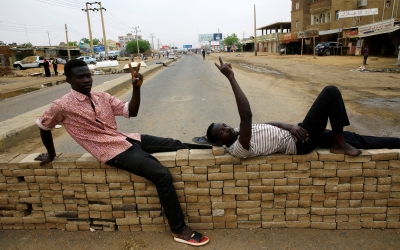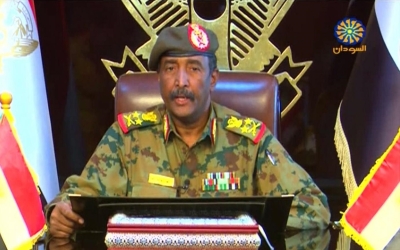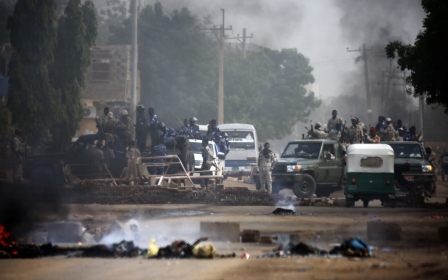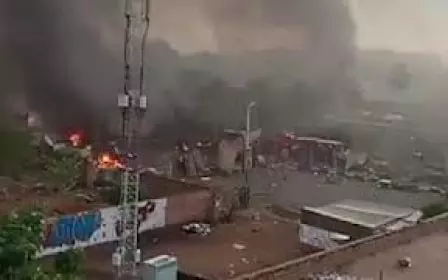Sudan's opposition pleads for extra doctors to treat injured protesters
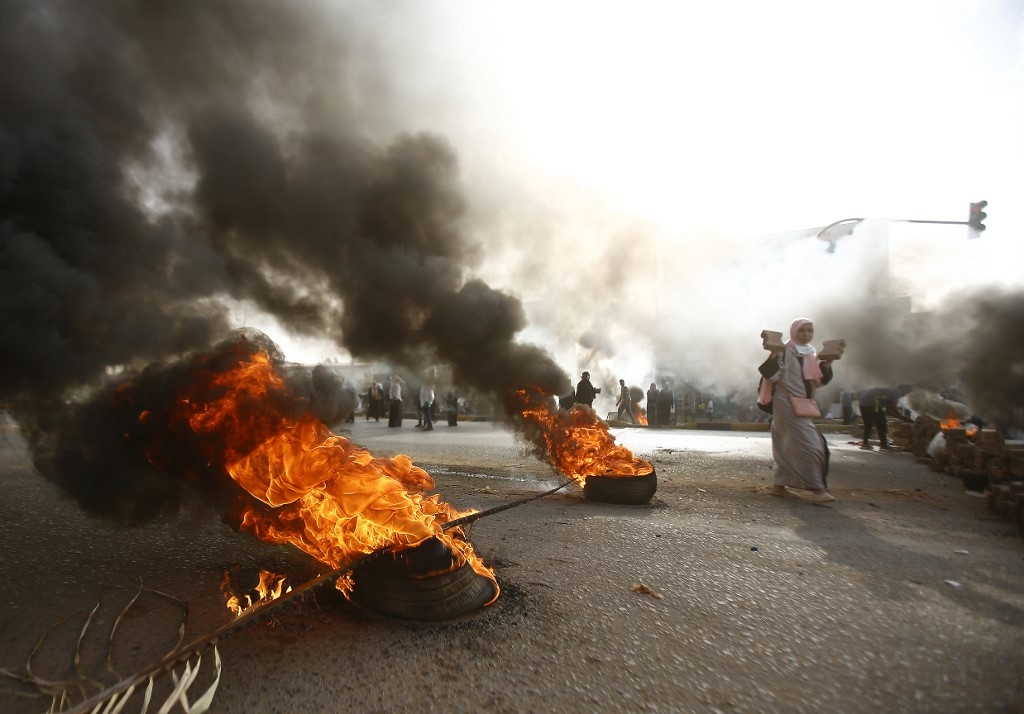
The umbrella group behind six months of opposition protests in Sudan has made a plea to local doctors, asking them to go to hospitals to help treat protesters that have been injured in an ongoing deadly crackdown by security forces.
"We call on all of our country's honourable doctors to head to the hospitals and serve in the emergency rooms to treat the wounded," the Sudanese Professionals Association said on Twitter on Tuesday.
Referring to Sudan's Transitional Military Council (TMC) as "the council of oppression and brutality", the group accused Sudanese military forces of violently targeting civilians.
The TMC gained power after it ousted Sudanese President Omar al-Bashir in April, following months of protests against his authoritarian rule.
On Monday, the military stormed an opposition sit-in outside of Sudan's army headquarters in Khartoum, dismantling barricades and attacking peaceful protesters.
New MEE newsletter: Jerusalem Dispatch
Sign up to get the latest insights and analysis on Israel-Palestine, alongside Turkey Unpacked and other MEE newsletters
At least 35 people have been killed in the violence, according to opposition-aligned doctors, as the demonstrations continued into Tuesday.
Hundreds more were injured as forces shot live fire at demonstrators in Khartoum.
Since the crackdown began, the TMC has been urged to show restraint, end any attacks on demonstrators, and heed the opposition's call for the creation of a civilian-led government.
Early on Tuesday, the head of the TMC, General Abdel Fattah al-Burhan, announced the council was ditching a three-year, power-transfer deal that was previously agreed upon.
Instead, he announced that elections would be held in nine months under "regional and international supervision".
Opposition leaders rejected the move and accused the ruling council of a "systematic and planned" crackdown.
On Tuesday, a group of Sudanese doctors in London also accused the military forces of carrying out attacks on hospitals and staff across the country, AFP news agency reported.
"Hospitals have been systematically attacked and medical staff have been brutally... savagely beaten in Sudan," said Hussam Almujammer, a member of the Sudanese Doctors Union.
'Right now, to call for snap elections is to deny democracy'
- Germany's UN Ambassador Christoph Heusgen
The escalation in Sudan has been met with concern from several countries and international bodies as well.
The United Nations Security Council on Tuesday met to discuss the situation in a closed-door session requested by the UK and Germany.
Ahead of the meeting, German Ambassador Christoph Heusgen called for "a return to the negotiating table", according to AFP.
"Legitimacy cannot come from the barrel of a gun," he said.
Huesgen said he agreed with the opposition's rejection of the TMC's plan to conduct elections within nine months, arguing that the conditions were not right to hold nationwide polls.
"Right now, to call for snap elections is to deny democracy," Heusgen told reporters.
In a joint statement on Tuesday, the United States, Norway and the United Kingdom also condemned the ongoing attacks against protesters, accusing the military council of jeopardising peace and the country's political transition.
"The people of Sudan deserve an orderly transition, led by civilians, that can establish the conditions for free and fair elections, rather than have rushed elections imposed by the TMC's security forces," the countries said.
Echoing the African Union (AU) and rights groups across the world, the three countries called for an "immediate" transfer of power to a civilian-led government.
They also raised "serious concern" over the Sudanese military council's decision to stop negotiating with opposition leaders.
Middle East Eye delivers independent and unrivalled coverage and analysis of the Middle East, North Africa and beyond. To learn more about republishing this content and the associated fees, please fill out this form. More about MEE can be found here.


